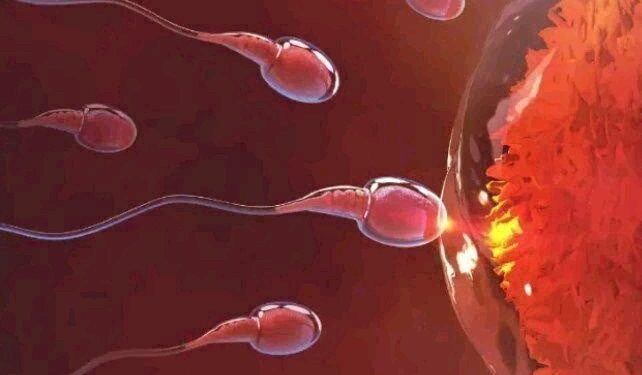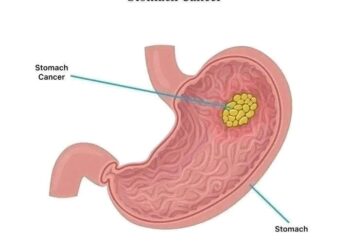Fertility in men is often something people only think about when problems arise. Yet the truth is that reproductive health depends on small, consistent habits practiced every day. Just like exercise strengthens the body or healthy food improves overall well-being, the choices a man makes such as what he eats, how he rests, and how he handles stress can directly influence the quality and quantity of his sperm.
Doctors often remind us that male fertility is not a fixed condition. It changes with lifestyle, environment, and age. Good habits can boost it, while harmful ones can reduce it over time. If you want to protect your fertility and increase your chances of fathering healthy children in the future, here are important daily practices every man should consider.
1. Eat a Balanced Diet
Nutrition is one of the most powerful tools for male fertility. Sperm cells are very sensitive to the nutrients a man consumes. Foods rich in zinc, vitamin C, vitamin E, and omega-3 fatty acids support sperm production and improve motility, which is the ability of sperm to move effectively toward the egg.
Vegetables, fruits, whole grains, lean proteins, and nuts should be part of the daily menu. For example, spinach and kale supply folate, citrus fruits provide vitamin C, fish like salmon offer omega-3s, while nuts and seeds are packed with zinc and vitamin E. These nutrients not only improve sperm quality but also protect them from damage caused by free radicals.
2. Stay Hydrated
Water is life, and when it comes to male fertility, hydration plays a big role. Semen, which carries sperm, is largely made up of fluid. If the body is dehydrated, semen volume and sperm mobility can both decline.
Drinking 6 to 8 glasses of clean water every day ensures the body can produce healthy semen and keeps sperm cells mobile and functional. Men who drink soft drinks or too much caffeine instead of water should be careful because these beverages can dehydrate the body rather than nourish it.
3. Exercise Moderately
Physical activity improves blood circulation, balances hormones, and helps maintain a healthy weight. Being overweight or obese is linked to lower sperm quality, while staying fit supports testosterone production.
However, moderation is key. Extreme workouts, long-distance cycling without breaks, or the use of steroids can actually harm fertility by reducing sperm count and lowering testosterone. Aiming for at least 30 minutes of moderate activity daily such as walking, jogging, swimming, or cycling is enough to keep the body in good condition without overstraining it.
4. Manage Stress
Stress is often overlooked, yet it has a major impact on male fertility. High stress increases cortisol, a hormone that interferes with testosterone production. Lower testosterone means reduced sperm production and lower libido.
Daily stress management is important. Relaxation techniques like meditation, prayer, yoga, or even simple deep breathing exercises can calm the mind and balance hormones. Spending time with loved ones, enjoying hobbies, or taking short breaks during the day can also make a big difference.
5. Avoid Smoking and Excessive Alcohol
Research has consistently shown that smoking damages sperm DNA, reduces sperm count, and lowers motility. Alcohol, especially when consumed in excess, interferes with hormone production and can reduce testosterone levels.
Men who quit smoking and reduce alcohol intake often see major improvements in fertility over time. Replacing these habits with healthier ones like exercise, reading, or herbal teas helps restore reproductive health and supports overall wellness.
6. Get Enough Sleep
Sleep is not just rest, it is a key factor in regulating hormones, including testosterone. Poor or irregular sleep patterns can disrupt the body’s natural hormone cycle, leading to reduced sperm production.
Experts recommend 7 to 8 hours of uninterrupted sleep every night. Good sleep hygiene such as keeping a regular bedtime, avoiding screens before bed, and sleeping in a quiet, dark room helps the body recharge and maintain fertility.
7. Protect Against Heat Exposure
Sperm production requires slightly cooler temperatures than the rest of the body. That is why the testes are located outside the body cavity. Frequent exposure to heat can reduce sperm count and quality.
Daily habits such as avoiding tight underwear, limiting long hot baths, not keeping laptops directly on the lap, and taking breaks during long drives can help keep the reproductive system cool. Even small adjustments like choosing loose cotton underwear instead of tight synthetic ones can make a positive difference.
8. Limit Exposure to Toxins
Beyond heat, chemicals in the environment can also affect fertility. Pesticides, heavy metals, and industrial pollutants are harmful to sperm health. Men working in environments with chemicals should use protective clothing and equipment. At home, reducing the use of strong cleaning chemicals and choosing natural products where possible can lower risk.
9. Maintain Regular Check-Ups
Men often avoid routine medical check-ups, but regular health screenings are essential. Conditions like diabetes, hypertension, or hormonal imbalances can quietly damage fertility if left untreated. A yearly visit to a doctor for a general check-up helps detect any health problems early.
Final Thoughts
Male fertility is not just about age, it is strongly linked to daily lifestyle. The good news is that men can take control of their reproductive health by making simple but consistent choices every day. Eating well, drinking enough water, exercising moderately, managing stress, sleeping well, avoiding harmful substances, and protecting against heat and toxins all play a role.
By practicing these habits, men not only improve their sperm quality but also increase their chances of fathering healthy children in the future. Fertility is not something to think about only when there is a problem, it is something to nurture every single day.








